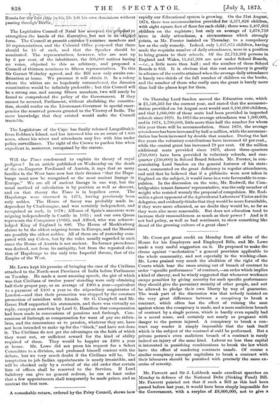Will the Times condescend to explain its theory of royal
pedigree ? In an article published on Wednesday on the death of the ex-Emperor Ferdinand of Austria, it says that so many families in the West have now lost their thrones "that the Haps- burgs must now be recognised as the most ancient lineage in Europe." We are all of ancient lineage in one way, but the usual method of calculation is by position as well as descent, and on that theory the Times is in hopeless error. The Hapsburgs were crowned in 1273, having previously been only nobles. The House of Savoy was probably made in- dependent by Charlemagne, and was certainly independent, and recognised as such, in 1078; Alfonso of Spain's ancestors were reigning independently in Castile in 1035; and our own Queen represents the Conqueror (1066), and Alfred, who was acknow- ledged King of England in 886. The House of Mecklenburg claims to be the oldest reigning house in Europe, and the Alassimi are possibly the oldest nobles. All of them are of yesterday com- pared with any Cohen, but by the rules usually regarded in such cases the House of Austria is not ancient. Its former precedence was derived, not from its antiquity, but from the repeated elec- tion of Hapsburgs to the only true Imperial throne, that of the Empire of the West.


































 Previous page
Previous page